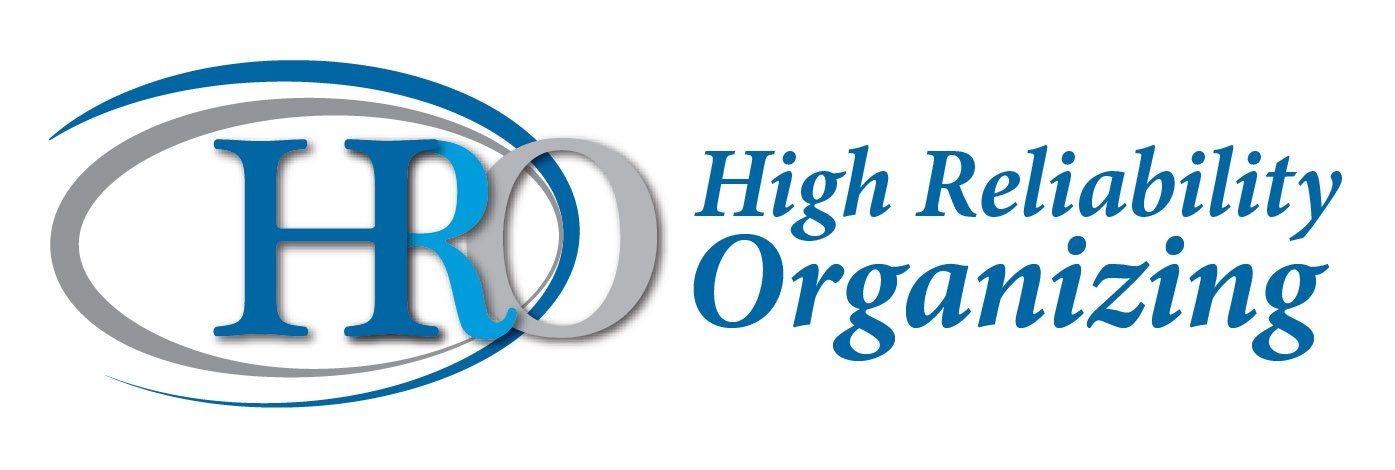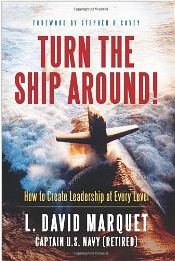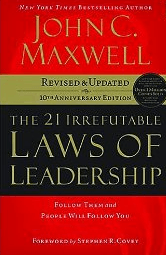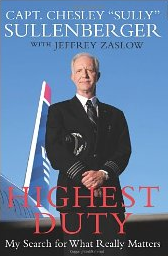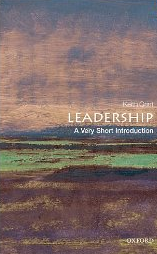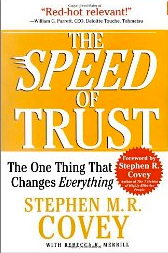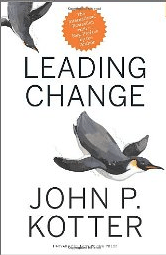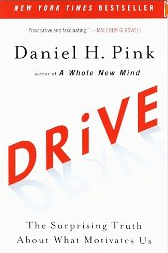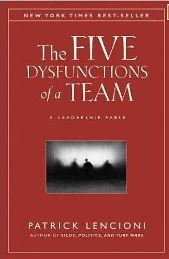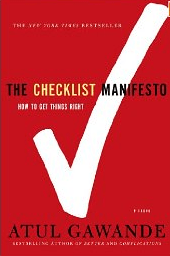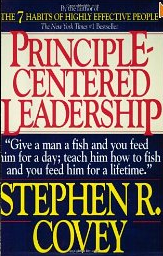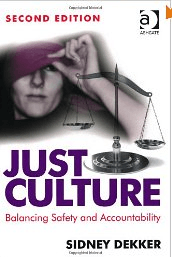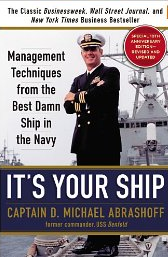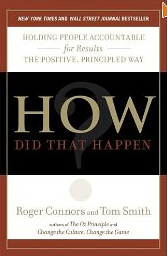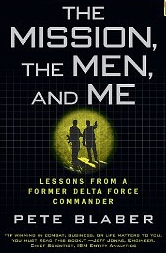HRO Recommended Leadership Books
All books can be found on the online Amazon bookstore. Just click the "Buy Now" Button!
Turn the Ship Around!
How to Create Leadership at Every Level
From the vantage point of the commander of the USS Santa Fe, read how the crew completely turned the ship around, going from worst to first by questioning many of our basic leadership assumptions and shifting from take-control authority to give-control empowerment.
Share the author's insights as the crew gains unprecedented decision making authority, the risks of doing so, and the reward of an exponentially more effective and more resilient organization.
Learn how to achieve astounding results by applying the author's practical steps, such as - Release proactivity and initiative with ''I intend to...'' - Build teamwork and minimize errors with ''deliberate action'' - Enhance responsibility and ownership by eliminating top-down monitoring - Improving morale by focusing on excellence rather than errors.
See what it's really like to operate a nuclear submarine -- from navigation to missile launching -- and learn the mechanisms used to propel Santa Fe not only to the top but to achieve a lasting transformation, one that resulted in the ship's continued operational excellence and the highly disproportionate promotion rate among Santa Fe's crew long after Marquet had left command.
The 21 Irrefutable Laws of Leadership:
Follow Them and People Will Follow You
What would happen if a top expert with more than thirty years of leadership experience were willing to distill everything he had learned about leadership into a handful of life-changing principles just for you? It would change your life.
John C. Maxwell has done exactly that in The 21 Irrefutable Laws of Leadership. He has combined insights learned from his thirty-plus years of leadership successes and mistakes with observations from the worlds of business, politics, sports, religion, and military conflict. The result is a revealing study of leadership delivered as only a communicator like Maxwell can.
Highest Duty: My Search for What Really Matters
On January 15, 2009, the world witnessed one of the most remarkable emergency landings in aviation history when Captain Chesley "Sully" Sullenberger skillfully glided US Airways Flight 1549 onto the surface of the Hudson River, saving the lives of all 155 aboard. His cool actions not only averted tragedy but made him a hero and an inspiration worldwide. To Sullenberger, a calm, steady pilot with forty years of flying experience who is also a safety consulting expert, the landing was not a miracle but rather the result of years of practice and training-wisdom he gained in the cockpit of U.S. Air Force jets and in his Texas boyhood.
Born to a World War II veteran and dentist father and an elementary school teacher mother, Sully fell in love with planes early. He learned to fly as an eager 16-year-old from a crop duster, an older neighbor in north Texas, who took off and landed his fragile plane on the grass field behind his house. While Sully′s father encouraged his interest in flying, he also imparted stern advice he′d learned from his Navy service during World War II: a commander is responsible for everyone in his care-and those words have shaped Sully′s life and work and continue to guide him today.
HIGHEST DUTY reveals the important lessons Sully learned through childhood, in his military service, and in his work as a commercial airline pilot. At heart, it is a story of hope and preparedness-that life′s challenges can be met if we′re ready for them-reminding us that, even in these days filled with war, tragedy, and economic uncertainty, there are values still worth fighting for.
A few weeks after the crash, Sully discovered that he′d lost a library book about professional ethics, Just Culture: Balancing Safety and Accountability, in the downed plane′s cargo hold. When he called the library to notify them, they waived the usual fees. Mayor Michael Bloomberg replaced the book when he gave Sully the Key to the City in a New York ceremony.
One Hundred Days:
The Memoirs of the Falklands Battle Group Commander
Contains the personal reflections of Admiral Sandy Woodward, during the hours up to the surrender at Port Stanley, of the repulse of the Argentinian navy and defeat of their air forces, of the sinking of the "Belgrano" and of the landing at Carlos Water, 8000 miles from home.
Leadership: A Very Short Introduction
Napoleon. Bill Gates. George W. Bush. Osama bin Laden. Leaders and leadership are perennial topics of debate. What is leadership? How does one become a leader? Do we actually need leaders? In this Very Short Introduction, Keith Grint offers provocative answers to these questions, prompting readers to rethink their assumptions about what leadership is.
Indeed, Grint argues that leadership is a very elusive quality, and that there are few definitive answers to be found, which explains why most books on leadership produce so much heat and so little light. But there are important questions to ask, questions which shed light on why leadership so resists definition. Grint looks at the way leadership has evolved from its earliest manifestations in ancient societies, highlights the early ideas about leadership found in Plato, Sun Tzu, Machiavelli and others, considers how social, economic, and political forces can undermine particular modes of leadership, and discusses the practice of management, its history, future, and influence on all aspects of society.
The SPEED of Trust:
The One Thing That Changes Everything
With nearly 750,000 copies in print, this instant classic shows that establishing trust is “the one thing that changes everything” (Marcus Buckingham, coauthor of Now, Discover Your Strengths ) in both business and life.
Trust, says Stephen M.R. Covey, is the very basis of the new global economy, and he shows how trust—and the speed at which it is established with clients, employees, and constituents—is the essential ingredient for any high–performance, successful organization.
For business leaders and public figures in any arena, The Speed of Trust offers an unprecedented and eminently practical look at exactly how trust functions in our every transaction and relationship—from the most personal to the broadest, most indirect interaction—and how to establish trust immediately so that you and your organization can forego the time–killing, bureaucratic check–and–balance processes so often deploy
Why Hospitals Should Fly:
The Ultimate Flight Plan to Patient Safety and Quality Care
"This book is a tour de force, and no one but John Nance could have written it. He, alone, masters in one mind the fields of aviation, health care safety, medical malpractice law, organizational sociology, media communication, and, as if that were not enough, the art of fine writing. Only he could have made sophisticated, scientifically disciplined instruction about the nature and roots of safety into a page-turner.
Medical care has a ton yet to learn from the decades of progress that have brought aviation to unprecedented levels of safety, and, in instructing us all about those lessons, John Nance is not just a bridge-builder - he is the bridge. This book should be required reading for anyone willing to face the facts about what it will take for health care to be as safe as it truly can be." Donald M. Berwick, MD, MPP President and CEO Institute for Healthcare Improvement (IHI)
Leading Change
Millions worldwide have read and embraced John Kotter’s ideas on change management and leadership.
From the ill-fated dot-com bubble to unprecedented M&A activity to scandal, greed, and ultimately, recession—we’ve learned that widespread and difficult change is no longer the exception. It’s the rule. Now with a new preface, this refreshed edition of the global bestseller Leading Change is more relevant than ever.
John Kotter’s now-legendary eight-step process for managing change with positive results has become the foundation for leaders and organizations across the globe. By outlining the process every organization must go through to achieve its goals, and by identifying where and how even top performers derail during the change process, Kotter provides a practical resource for leaders and managers charged with making change initiatives work. Leading Change is widely recognized as his seminal work and is an important precursor to his newer ideas on acceleration published in Harvard Business Review.
Needed more today than at any time in the past, this bestselling business book serves as both visionary guide and practical toolkit on how to approach the difficult yet crucial work of leading change in any type of organization. Reading this highly personal book is like spending a day with the world’s foremost expert on business leadership. You’re sure to walk away inspired—and armed with the tools you need to inspire others.
Switch: How to Change Things When Change Is Hard
Why is it so hard to make lasting changes in our companies, in our communities, and in our own lives?
The primary obstacle is a conflict that’s built into our brains, say Chip and Dan Heath, authors of the critically acclaimed bestseller Made to Stick. Psychologists have discovered that our minds are ruled by two different systems—the rational mind and the emotional mind—that compete for control. The rational mind wants a great beach body; the emotional mind wants that Oreo cookie. The rational mind wants to change something at work; the emotional mind loves the comfort of the existing routine. This tension can doom a change effort—but if it is overcome, change can come quickly.
In Switch, the Heaths show how everyday people—employees and managers, parents and nurses—have united both minds and, as a result, achieved dramatic results:
- The lowly medical interns who managed to defeat an entrenched, decades-old medical practice that was endangering patients.
- The home-organizing guru who developed a simple technique for overcoming the dread of housekeeping.
- The manager who transformed a lackadaisical customer-support team into service zealots by removing a standard tool of customer service
In a compelling, story-driven narrative, the Heaths bring together decades of counterintuitive research in psychology, sociology, and other fields to shed new light on how we can effect transformative change. Switch shows that successful changes follow a pattern, a pattern you can use to make the changes that matter to you, whether your interest is in changing the world or changing your waistline.
Drive: The Surprising Truth About What Motivates Us
The New York Times bestseller that gives readers a paradigm—shattering new way to think about motivation.
Most people believe that the best way to motivate is with rewards like money—the carrot-and-stick approach. That's a mistake, says Daniel H. Pink (author of To Sell Is Human: The Surprising Truth About Motivating Others). In this provocative and persuasive new book, he asserts that the secret to high performance and satisfaction-at work, at school, and at home—is the deeply human need to direct our own lives, to learn and create new things, and to do better by ourselves and our world.
Drawing on four decades of scientific research on human motivation, Pink exposes the mismatch between what science knows and what business does—and how that affects every aspect of life. He examines the three elements of true motivation—autonomy, mastery, and purpose-and offers smart and surprising techniques for putting these into action in a unique book that will change how we think and transform how we live.
Winning
The New York Times bestseller that gives readers a paradigm—shattering new way to think about motivation.
Most people believe that the best way to motivate is with rewards like money—the carrot-and-stick approach. That's a mistake, says Daniel H. Pink (author of To Sell Is Human: The Surprising Truth About Motivating Others). In this provocative and persuasive new book, he asserts that the secret to high performance and satisfaction-at work, at school, and at home—is the deeply human need to direct our own lives, to learn and create new things, and to do better by ourselves and our world.
Drawing on four decades of scientific research on human motivation, Pink exposes the mismatch between what science knows and what business does—and how that affects every aspect of life. He examines the three elements of true motivation—autonomy, mastery, and purpose-and offers smart and surprising techniques for putting these into action in a unique book that will change how we think and transform how we live.
The Five Dysfunctions of a Team
Throughout the story, Lencioni reveals the five dysfunctions which go to the very heart of why teams even the best ones-often struggle. He outlines a powerful model and actionable steps that can be used to overcome these common hurdles and build a cohesive, effective team. Just as with his other books, Lencioni has written a compelling fable with a powerful yet deceptively simple message for all those who strive to be exceptional team leaders.
The Checklist Manifesto: How to Get Things Right
Throughout the story, Lencioni reveals the five dysfunctions which go to the very heart of why teams even the best ones-often struggle. He outlines a powerful model and actionable steps that can be used to overcome these common hurdles and build a cohesive, effective team. Just as with his other books, Lencioni has written a compelling fable with a powerful yet deceptively simple message for all those who strive to be exceptional team leaders.
Principle-Centered Leadership
How do we as individuals and organizations survive and thrive amid tremendous change? Why are efforts to improve falling so short in real results despite the millions of dollars in time, capital, and human effort being spent on them? How do we unleash the creativity, talent, and energy within ourselves and others in the midst of pressure? Is it realistic to believe that balance among personal, family, and professional life is possible?
Stephen R. Covey demonstrates that the answer to these and other dilemmas is Principle-Centered Leadership, a long-term, inside-out approach to developing people and organizations. The key to dealing with the challenges that face us today is the recognition of a principle-centered core within both ourselves and our organizations. Dr. Covey offers insights and guidelines that can help you apply these principles both at work and at home -- leading not just to a new understanding of how to increase quality and productivity, but also to a new appreciation of the importance of building personal and professional relationships in order to enjoy a more balanced, more rewarding, more effective life.
Just Culture: Balancing Safety and Accountability
A just culture protects people's honest mistakes from being seen as culpable. But what is an honest mistake, or rather, when is a mistake no longer honest? It is too simple to assert that there should be consequences for those who 'cross the line'. Lines don't just exist out there, ready to be crossed or obeyed.
We - people - construct those lines; and we draw them differently all the time, depending on the language we use to describe the mistake, on hindsight, history, tradition, and a host of other factors. What matters is not where the line goes - but who gets to draw it. If we leave that to chance, or to prosecutors, or fail to tell operators honestly about who may end up drawing the line, then a just culture may be very difficult to achieve. The absence of a just culture in an organization, in a country, in an industry, hurts both justice and safety. Responses to incidents and accidents that are seen as unjust can impede safety investigations, promote fear rather than mindfulness in people who do safety-critical work, make organizations more bureaucratic rather than more careful, and cultivate professional secrecy, evasion, and self-protection.
A just culture is critical for the creation of a safety culture. Without reporting of failures and problems, without openness and information sharing, a safety culture cannot flourish. Building on the enormous success of the 2007 original, Dekker revises, enhances and expands his view of just culture for this second edition, additionally tackling the key issue of how justice is created inside of organizations. The goal remains the same: to create an environment where learning and accountability are fairly and constructively balanced.
It's Your Ship: Management Techniques from the Best Damn Ship in the Navy
The story of Captain D. Michael Abrashoff and his command of USS Benfold has become legendary inside and outside the Navy. Now Abrashoff offers this fascinating tale of top-down change for anyone trying to navigate today's uncertain business seas. When Captain Abrashoff took over as commander of USS Benfold, a ship armed with every cutting-edge system available, it was like a business that had all the latest technology but only some of the productivity.
Knowing that responsibility for improving performance rested with him, he realized he had to improve his own leadership skills before he could improve his ship. Within months he created a crew of confident and inspired problem-solvers eager to take the initiative and take responsibility for their actions. The slogan on board became "It's your ship," and Benfold was soon recognized far and wide as a model of naval efficiency. How did Abrashoff do it? Against the backdrop of today's United States Navy-Benfold was a key player in our Persian Gulf fleet-Abrashoff shares his secrets of successful management including:
- See the ship through the eyes of the crew: By soliciting a sailor's suggestions, Abrashoff drastically reduced tedious chores that provided little additional value.
- Communicate, communicate, communicate: The more Abrashoff communicated the plan, the better the crew's performance. His crew would eventually call him "Megaphone Mike," since they heard from him so often.
- Create discipline by focusing on purpose: Discipline skyrocketed when Abrashoff's crew believed that what they were doing was important.
- Listen aggressively: After learning that many sailors wanted to use the GI Bill, Abrashoff brought a test official aboard the ship-and held the SATs forty miles off the Iraqi coast. From achieving amazing cost savings to winning the highest gunnery score in the Pacific Fleet, Captain Abrashoff's extraordinary campaign sent shock waves through the U.S. Navy. It can help you change the course of your ship, no matter where your business battles are fought.
How Did That Happen?
Holding People Accountable for Results the Positive, Principled Way
The New York Times bestseller that provides a simple, proven approach to improve accountability and the bottom line.
The economy crashes, the government misfires, businesses fail, leaders don't lead, managers don't manage, and people don't follow through, leaving us asking, "How did that happen?"
Surprises caused by a lack of personal accountability plague almost every organization today, from the political arena to large and small businesses. How Did That Happen? offers a proven way to eliminate these nasty surprises, gain an unbeatable competitive edge, and enhance performance by holding others accountable the positive, principled way.
As the experts on workplace accountability and the authors of The Oz Principle, Roger Connors and Tom Smith tackle the next crucial step everyone can take, whether working as a manager, supervisor, CEO, or individual performer: creating greater accountability in all the people on whom you depend.
The Mission, The Men, and Me: Lessons from a Former Delta Force Commander
"A book about the complexities of combat that's just as applicable for dealing with the complexities of business and our personal lives." (Kevin Sharer, Chairman & CEO, Amgen)
As a commander of Delta Force-the most elite counter-terrorist organization in the world-Pete Blaber took part in some of the most dangerous, controversial, and significant military and political events of our time. Now he takes his intimate knowledge of warfare-and the heart, mind, and spirit it takes to win-and moves his focus from the combat zone to civilian life.
As the smoke clears from exciting stories about neverbefore-revealed top-secret missions that were executed all over the globe, readers will emerge wiser, more capable, and more ready for life's personal victories than they ever thought possible.
Be the first to know
We will get back to you as soon as possible
Oops, there was an error sending your message.
Please try again.
